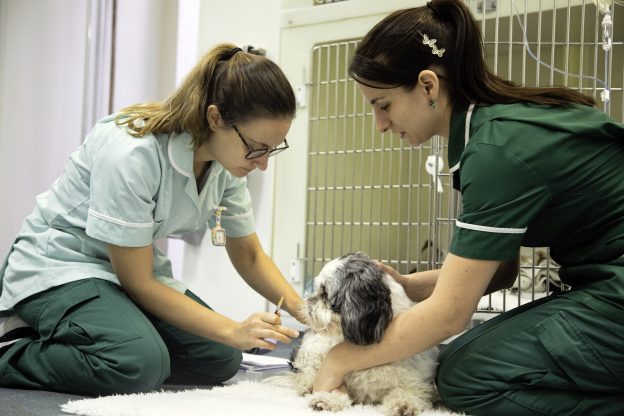If you’re not employed in a veterinary practice, you may be eligible to apply for one of our programmes as a non-employed applicant. We consider applications from non-employed students for some of our programmes, on condition that you meet all other requirements (these will be outlined on the individual course pages below). However, please be aware entry onto these courses is competitive; therefore, you may wish to read more about how to strengthen your application.
Please see below for programmes that accept students who are not employed in a veterinary practice:
- *Non-employed* Level 3 Diploma in Veterinary Nursing
- FdSC Veterinary Nursing (Royal Veterinary College)
- BSc Hons Veterinary Nursing with Foundation Year (Middlesex University)
- BSc Hons Veterinary Nursing (Middlesex University)
Placements in Veterinary Practice
We have a dedicated Placement Liaison Team, who use connections with over 600 Training Practices (TPs) across the UK to source placements for non-employed students on companion animal diploma and degree programmes. You can also try to source your own placement in a veterinary practice. This practice must be an RCVS approved Training Practice (TP) or Auxiliary Training Practice (aTP), and the practice must be able to offer you clinical coach support. We have compiled some advice about sourcing work placements here.
Do you have any more questions? If so, feel free to connect with us on social media, email us at admin@caw.ac.uk, call us on 01480 422060 or talk to us via web chat.

